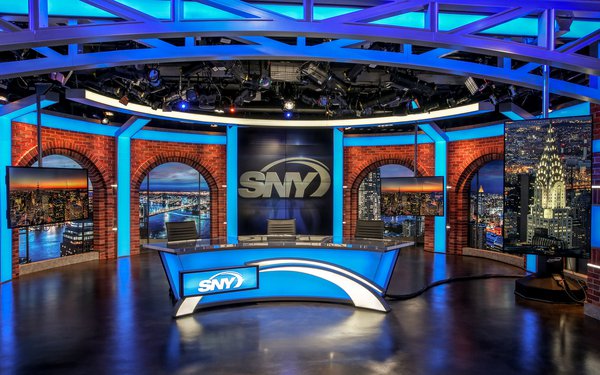Commentary
RSNs: Going Local -- Under A National TV/Video Roof?
- by Wayne Friedman , Staff Writer, July 3, 2023

Virtual pay TV provider YouTube TV has dropped SNY, a New York-area regional sports network -- the last remaining regional sports network on its lineup -- just months after winning the battle for “NFL Sunday Ticket.”
Previously it dropped another regional sports network -- YES Network -- and the national MLB Network.
Just in case you thought much of the regional sports business focused on the miscalculation of Sinclair Media Group buying up those Fox regional sports networks in 2019 for $10.6 billion (which resided for a short time with Walt Disney), there is an ongoing realization that the sports business is like catching a falling knife.
Sinclair's Diamond Sports Group filed for bankruptcy protection in March.
advertisement
advertisement
Those remaining regional sports network groups are not doing well.
Earlier this year, in February, Warner Bros. Discovery said it would leave the RSN under the AT&T Sports Networks brand, after AT&T said it would sell all of WarnerMedia to Discovery.
These slim margins/high cost-to-consumer networks just are not a good deal-- even as a locally focused streaming service. That has people speculating about what's left for regional sports networks. The answer might be: Centralized media content.
That is something the Major League Soccer has done -- where all local-match telecasts are produced under one roof, under one subscription service under its MLS Season Pass, which come under a digital-rights deal it made with Apple TV+. A centralized approach saves tons of money.
This is where some experts believe Major League Baseball and other leagues could be headed.
The highly scrutinized Major League Baseball -- more than other sports with a 162-game schedule -- is betting it can figure this out.
“I hope we get to the point where, on the digital side, when you go to MLB.tv, you can buy whatever the heck you want,” says Rob Manfred, commissioner of Major League Baseball. “You can buy the out-of-market package. You can buy local games, you can buy two sets of local games -- whatever you want. I mean, that is, to me, the definition of what is going to be a valuable digital offering going forward.”
And that means saying “no” to dozens of individual sports networks around the U.S.
Regional sports networks typically add a lot of shoulder programming to live programming. That costs money. And while it's important to have a local look and feel when it comes to local sports teams, consumers just want to cut to the chase: Live games.
Here's Manfred again: “I think as you move more nationally, by definition, you're gonna have more central revenue.”
And maybe then everyone can pay -- and play -- ball.



